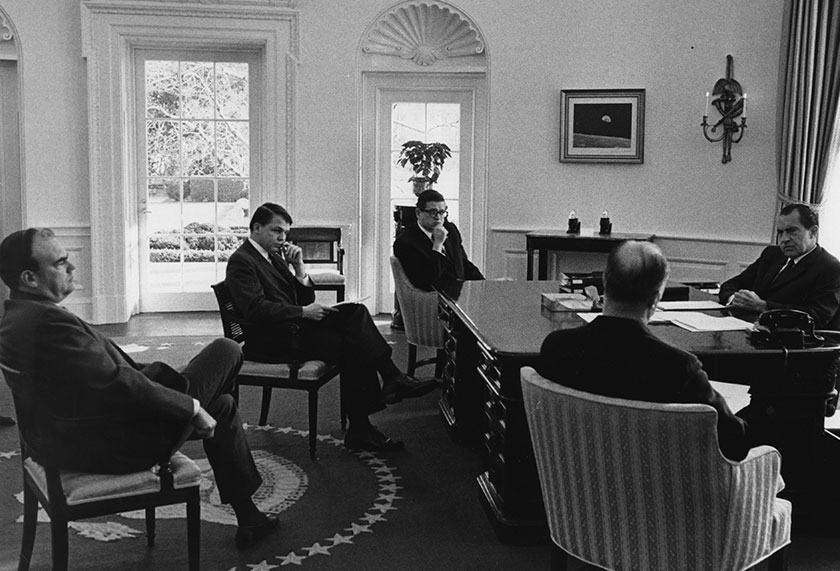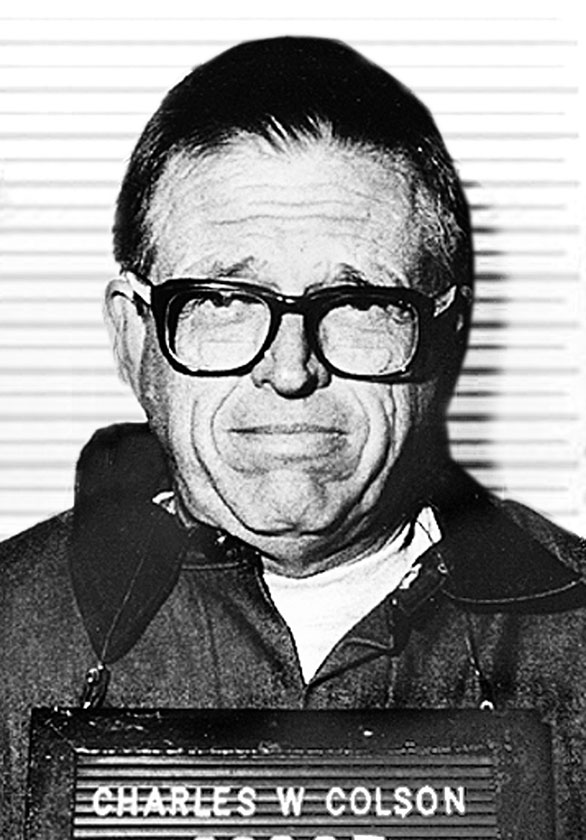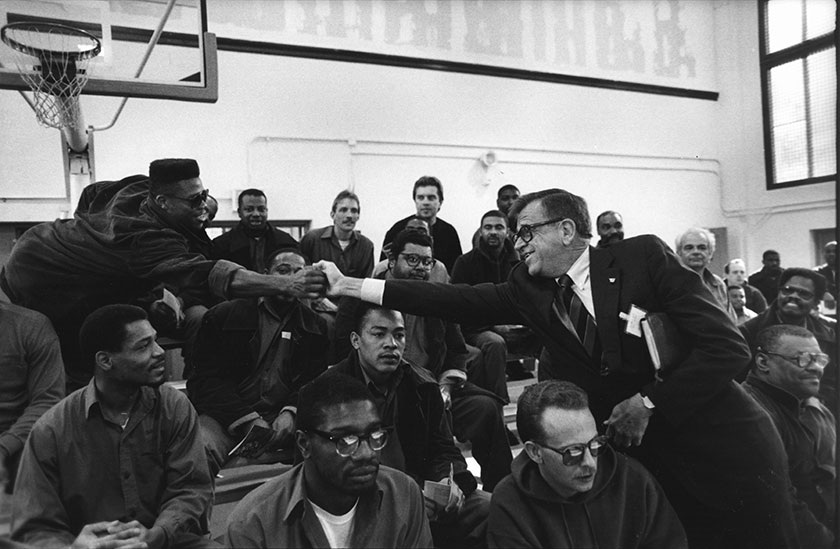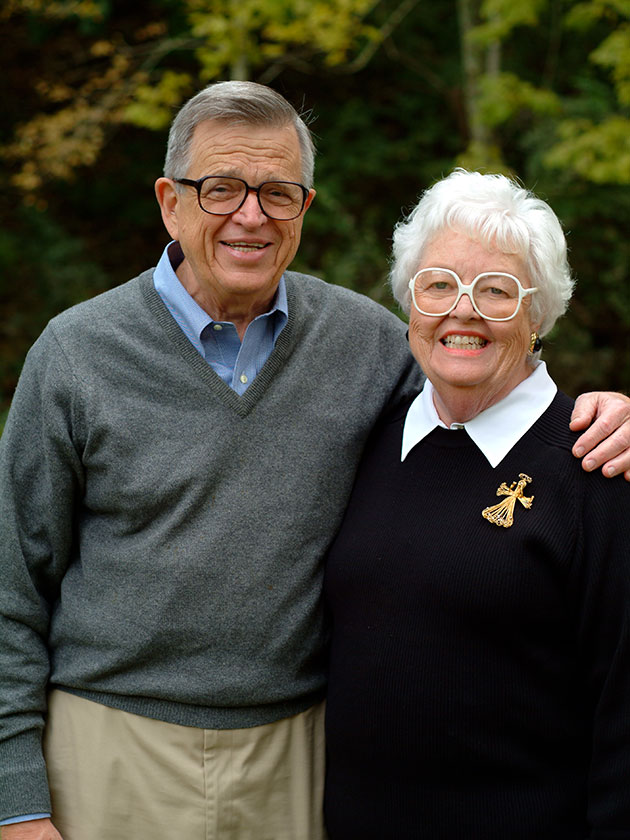-
THE GLORIOUS DEFEAT OF CHUCK COLSON
Charles Colson was one of the most powerful men in the country—until it all came crashing down.
At Maxwell Federal Prison Camp in 1974, Charles "Chuck" Colson sat in the dayroom focused on writing a letter. A prisoner named Archie suddenly called out, "Colson!"
Everyone went quiet.
"Colson!" Archie said again. A tall, strongly built prisoner, he loomed over President Nixon's former "hatchet man."
"What are you going to do for guys like us when you get out?" he demanded.
Chuck promised he would never forget the men at Maxwell.
"Bull!" Archie said, throwing down the deck of cards he had been playing with. "Big shots like you get out and forget little guys like us."

'Big shots like you get out and forget little guys like us.'
WATERGATE AND BECOMING 22326
Before Chuck became federal prisoner number 22326, there was nothing in his life story to suggest that he would end up behind bars. Raised near Boston, Massachusetts, he graduated from Brown University, went on to become the youngest captain in the U.S. Marines Corps, and earned a law degree with honors. After that, he entered politics, a field for which he had a natural talent.
By 1969, Chuck reached the high point of a dramatic climb to influence and prestige. As special counsel to President Nixon, he was one of the most powerful men in the country—until it all came crashing down.
When the Watergate scandal broke, Chuck found himself at the center of the storm as one of the "Watergate Seven." Under the pressure, Chuck retired into private life, but the threat of prosecution on Watergate-related charges still haunted him and his family.
At this critical moment, a close friend gave Chuck a copy of Mere Christianity, a book by popular British author C.S. Lewis that explores and defends the core beliefs of the Christian faith. The book sparked a series of conversations and encounters that led, finally, to Chuck's conversion.
"I spent an hour calling out to God," Chuck remembered in 2008, describing the night he spent sitting in his car, sobbing and praying. "I did not even know the right words. I simply knew that I wanted Him."

'I spent an hour calling out to God. I did not even know the right words. I simply knew that I wanted Him.'
DEFEAT INTO VICTORY
After telling God, "I surrender," Chuck developed a circle of Christian friends. They helped him make the hard decision to plead guilty to obstruction of justice in the Daniel Ellsberg case. A federal judge sentenced Chuck to serve one to three years in prison.
Chuck, who had been on top of the world, now found himself at the bottom—deprived of his freedom and separated from his family. He thought his life was over and that being labeled a "convict" would kill his chances of doing anything meaningful with his life.
"Was I ever wrong!" Chuck said decades later. "God used my greatest defeat for His glory!"
Chuck's experience at a federal prison camp, though painful for him and his family, wound up awakening him to a new passion in life: helping other prisoners.
While spending time with prisoners, he realized prison failed to "correct" incarcerated men and women. Many times, it left them more hopeless and criminally minded than before. He wondered what he could do to help them.
When he was released in 1975, Chuck tried to figure out what to do next. But he was haunted by the prisoners he had left behind, and by the promise he had made to Archie.

'God used my greatest defeat for His glory!'
KEEPING THE PROMISE
As he sought God's guidance, Chuck felt led in 1976 to found Prison Fellowship®—with the goal of giving hope to prisoners. Over the coming decades, the organization would grow more than he ever dreamed, becoming the largest prison ministry in the country and the world.
Though he also went on to found The Colson Center for Christian Worldview and a popular national radio program, Chuck never forgot his promise. He often visited prisons, speaking with prisoners, and he spent every Easter behind bars. In 2011, he even returned to Maxwell and spent Good Friday at a chapel service with incarcerated men. Though the facility had changed, it brought back strong memories of his own days of incarceration, and it renewed his passion to show men and women that they, too, could come out of prison as positive leaders for society.
In March 2012, Chuck fell ill while speaking at a conference. Doctors discovered bleeding on his brain; he had suffered a stroke. Though he showed some initial signs of recovery, Chuck died from complications of the stroke on April 21.
Nationwide, people mourned the loss of one of the most important leaders of his generation. Hundreds packed Washington National Cathedral a few weeks later to celebrate Chuck's inspiring life. At the memorial service, where former prisoners rubbed shoulders with members of Congress, the consensus was clear: Though Chuck had gone through hard times in his life, and had left this earth, neither prison nor death had defeated him. God used both to achieve His glorious purposes.

Though Chuck had gone through hard times in his life, and had left this earth, neither prison nor death had defeated him. God used both to achieve His glorious purposes.